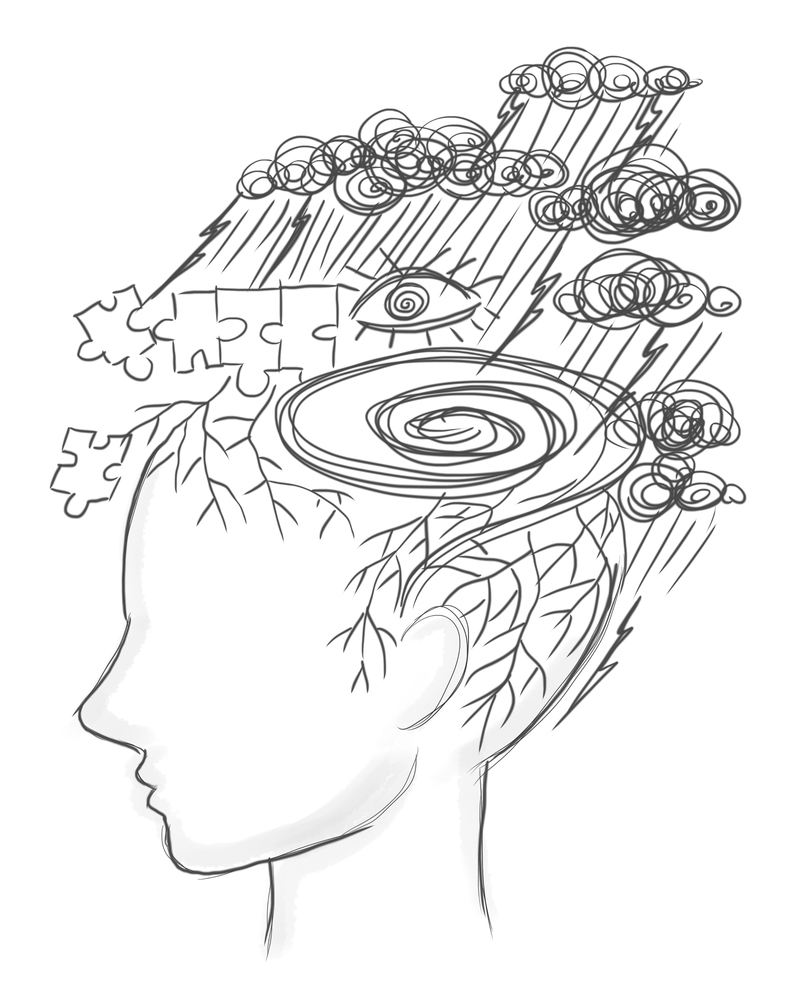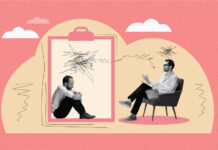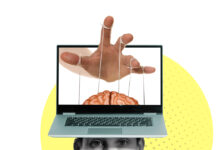Psychiatry frames unusual or extreme emotional experiences as internal dysfunctions rather than responses to complex social and environmental factors. Recent work has argued that this perpetuates a form of “affective injustice” that fosters sanism; while various scholars have argued that this framing process itself – also referred to as psychiatrization – can have a range of negative consequences across social, political, and individual spheres, impacting how we understand ourselves and others.
Now, a forthcoming study by Zoey Lavallee argues that psychiatrization also impacts our “affective scaffolding” – meaning the different ways that agents engage with, recruit or modify their environments to actively shape their emotions, moods, or other affective phenomena.
“Affective scaffolding,” writes Lavallee, “refers to the variety of ways that we engage with or structure the environment in order to alter our affective lives – to enhance, suppress, regulate, or induce emotions, or otherwise transform affectivity.”
“Psychiatric drugs are designed, marketed, and prescribed as technologies that have the special power to transform affective life by intervening on the pathological underpinnings of distress and suffering to change how we feel,” Lavallee writes. “Psychiatrization influences affective scaffolding by biasing individuals toward psychiatric drugs to manage an expanding array of affective experiences.”
While the author suggests that the impact of this influence is not always a negative, bad pharmaceutical scaffolding results when our bias towards psychiatric drugs leads to overreliance on these drugs.
According to Lavallee, this overreliance occurs where
(1) at least some of the key determinants of these affective experiences are properties of the agent’s environment, in contrast to, in a strict sense, properties internal to the person, and
(2) pharmaceutical scaffolding obviates the need for or displaces other non-pharmaceutical options that would better serve the agent’s affective needs and interests.
















If you take your theoretical specs off and ask yourself whether psychiatry is remaking our emotional landscape, or if instead it is the whole of society that is making not just our emotional but our mental and medical landscape exactly what it is today – deranged, confused, unhealthy – then only a truly insane person would find it was merely psychiatry who are remaking our emotional landscape rather then this whole dysfunctional society of which psychiatry itself is just a subsection of this diseased social flesh we call ‘society’ at large. Psychiatry is merely wanting to denature, destroy, obliterate our emotional landscape, which is not a change at all really, because in one way or another society aims to do the same thing, but just keep you destracted from the fact by false hopes, dreams and piggy treats. But to give credit where credit is due, in terms of it’s aim at expunging the emotional landscape from the organism (‘patient’) and turning them into a twitching mass of cells that is easier to manage, in this respect the success rate of psychiatry is really quite high. I’m an escapee from the system but years on might still occassionaly be mistaken for the living dead.
Really, psychiatry is just holding the water for a society that, if truth be told, couldn’t give a flying f*ck about the real life outcomes of people like me and perhaps you and all the others who at one point or another came unstuck in this gruelling and merciless society, perhaps who fall into a state of misery, poverty, exploitation or abuse, including in abject wage slavery to a job that doesn’t even afford to cover the costs of food and rent, let alone afford any capital through which to escape a meaningless and emiserating servitude. Indeed if they complained about their wage slavery they might be accused of lacking a work ethic, i.e. being lazy, ungrateful. Anyone on a living wage job is a priori designated ‘stupid’ by most people in this dark and deluded society and that is a fact – it is part of the necessary defensive illusion of the ‘haves’ to believe people like me and perhaps you have made all the wrong decisions, or are lazy, or stupid, or full of selfish and desructive vices. If we woke up to this simple fact that it is this vast and all dominating society that constitutes ALL ‘mental illness’ and ‘mental health’ (equally bullshit concepts) we would no longer blame this ‘mental illness’ on the brain, and no longer implicity attribute virtue to those who appear to have ‘mental health’ (which in an insane society would also count as mental illness at the same time as being mental health). But instead of admitting all this and daring to challenge our much cherished notions of being able to blame social trauma and tragedy on the victims brains, we instead willingly and ravenously throw our children to the profit making vampires of psychiatry and psychopharmacology who just try and disable and supress and denature and destroy our emotional landscape, not remake it. Every single utterance in what I have said is the plain and obvious truth so if you cancel me you yourself must be mad which is as probable as Barak Obama being able to catch a fish in a bucket.
Report comment
While I hear your complaints, many people destroy their lives by real, untreated mental illnesses (I being one of them). Had I sought out psychiatry 18 years ago, I would have avoided homelessness, jail, and utter destruction.
Report comment
There are innumerable cases of people swallowed up by the insensate Moloch of the mental health industry whose lives were utterly destroyed by its barbaric brain-disabling “treatments’ or who were stigmatized permanently by its degrading pseudo-scientific labels. As Dr. Peter Goetzsche has wisely noted, the last thing an emotionally distressed person should do is consult a psychiatrist–or, I might add, any other so-called professional who diagnoses fictitious illnesses and engages in the corrupt, nonsensical con game of therapy.
Report comment
Well said! I was a psych nurse for 10 years and saw this horror first hand. My attempts to advocate for patients was met with threats and intimidation from the mental health “professionals.” Their confirmation bias is mentally unhealthy.
Report comment
Sheila, since you had first-hand experience with mental health practitioners, I think you should write for MIA an account of your dealings with them as well as your observations of patients.
Report comment
I totally agree with what you are saying! I couldn’t have said it better myself! What you wrote is more satisfying than the article! I wish more people were open minded as you! Because I knew I am crazy!
Report comment
As a Medical Doctor who was going through some gruelling training for years, I ended up with a broken marriage in my final year of residence. My brain did not cope well and I ended up psychotic, am glad I was treated urgently. I recovered but was still unable to cope with the fact that my wife was no longer in my life, I also couldn’t cope with work and studies, the medication made me very slow. I could not earn !!! all I needed was time for my mind to process all this but society gives one no options… I was given a diagnosis of schizoaffective disorder, was told I had to be on antipsychotics for life !! Antidepressants were added, these made me suicidal !! I was numb, no feelings !! After a year, I escaped, fled to a new country, stopped all medication and and now a year later, am feeling 1000 percent much better.
Report comment
I completely understand the concern with over-reliance on medication for things that may actually require therapy instead or in addition, but let’s not throw out the baby with the bathwater. Some people, myself included, have real illnesses that are effectively treated with medication (in combination with therapy). To put it simply, the wires in some of our brains are are a little mixed up. Therapy alone, and even addressing all the ills of society in general, will not fix what’s haywire in some of our brains. Let’s make a goal to do two things: 1) Get adequate psychiatry to those who truly need it but don’t currently have access, and 2) address the societal ills that cause people to think they need pills when really they need a better society and/or therapy. Let’s please, please keep the pills and psychiatrists though for those of us who truly require them for a livable life.
Report comment
Just what makes you think your emotional distress, whatever form it may take, is due to a badly wired brain? Was this alleged malfunction discovered through some kind of rigorous testing, or rather suggested to you by a psychiatrist who subscribes to the latest biomedical hypothesis (after the hypothesis of deficient serotonin or other chemical imbalance was shown to be flawed and deliberately covered up)?
Judging from the horror stories related by numerous contributors to this website over the years, I really question whether the addictive harmful neurotoxins and other so-called treatments proffered by mental health practitioners really help the vast majority of their clients to enjoy a “livable life.” Indeed, the compelling evidence adduced by Peter Breggin, Phil Hickey, Bruce E. Levine, Peter Goetzsche, Joanna Moncrieff, and other honest, competent researchers who deal with this question would seem to indicate quite the contrary.
Report comment
I agree with you, Jane.
Report comment
I have never heard the term “affective scaffolding” before. But it seems like it would be a super important part of how we manage our emotional lives. I have found, after many years, that I’ve had to learn to modify my environment to learn how to better manage my own emotions, i.e. choose my activities, priorities, and sleep habits. Maintaining a grounded and quiet connection to my home world provides an anchor for me. If I were to go out too much and compromise my sleep, that would probably affect me emotionally. I think this is one reason I have managed to keep myself from being hospitalized in a long time. If I were just relying on my drugs (which mostly just numb and contain me, but have nonetheless “failed” in the past) I would probably have been back there by now. Unfortunately those who prescribe the drugs don’t seem to know this.
Report comment
Re-evaluation Counselling (RC) or Co-counseling is effective. RC is not for psychotropic medications.
Report comment